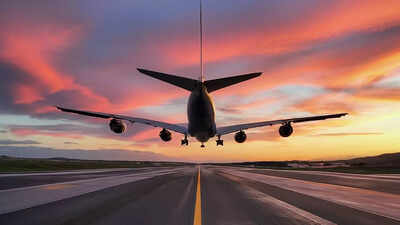American involved in pro-Canada rallies says ‘most Canadian thing ever’… ‘we’re sorry’ about Trump | CBC News

Kate Powers “felt shame” when she first heard U.S. President Donald Trump talking about annexing Canada.
Powers said she was born and raised in western New York in the Buffalo-Niagara Falls area.
“Growing up, Canada was the backyard [with] trips to Toronto, trips to the Shaw Festival, trips to Stratford, family vacations in cottage country up on Georgian Bay,” Powers told CBC Hamilton.
“So, the idea to me that the president of the United States would get to a place where he would say we’re going to annex Canada as the 51st state, to me is appalling. And I felt shame when I heard him first start talking this way.”
Powers is a co-organizer of a series of rallies from the Pacific to the Atlantic, from Alaska to Vermont to London, England, celebrating the longstanding friendship between the United States and Canada.
Known as the ‘Elbows Up for Canada’ movement, the rally organizers represent a coalition of American and Canadian advocacy groups. Rallies are planned for July 5, including in Buffalo, N.Y. and Detroit, Mich.

Powers said people with some small “grassroots groups” in Windsor, Ont., and in Ottawa will be participating in the rallies.
One of the rallies is actually going to be sort of in the middle of the St. Lawrence River … so, folks in Canoes and kayaks and paddle boards from the United States and Canada are going to meet up just in the river across from Prescott, Ont.,” she said.
“They’ll be at the great Canadian flag right down by the water in Windsor, and then there will be an event in Detroit directly across from them.”
‘Citizens on both sides want to build bridges, not walls’
“In an era when division seems to dominate headlines, we want to show that the spirit of friendship and cooperation is alive and well along our shared border,” Detroit-based co-organizer Audrey Bourriaud said. “These rallies prove that ordinary citizens on both sides want to build bridges, not walls.”
Bourriaud’s group, We the People Dissent, and a group called Peace, Love, and Handshake in Bellingham, WA., held solidarity events with Canadians.
Powers gave credit to “the women in Quebec who made the human chain in February to oppose fascism,” for the initial inspiration for the rallies.
“I turned to my husband and I said we should do that across one of the bridges in Niagara Falls,” she said.
On Trump’s so-called ‘Liberation Day,’ on April 2, when “he was announcing all of these arbitrary and capricious tariffs,” Powers said the first “counter programming” rally was held in the shadow of the Peace Bridge in Buffalo.
She said dozens of people turned out in “freezing rain [and] howling wind” to stand in solidarity with Canada.
“We waved our flags and we sang the Canadian National anthem as loud as we could for them, although I’m sure they couldn’t hear it across the river,” Powers said.
We want our Canadian friends to know that we’re still friends, that regardless of the vitriol coming out of the White House, the predatory threats, that we love and respect Canada as a sovereign nation.– Kate Powers, Buffalo, N.Y., resident
Powers said the upcoming rallies have several goals.
“The first one is to say to you … to everybody in Canada, the most Canadian thing ever — to say we’re sorry,” she said.
“I know a lot of Canadians are hurt, are angry, are frustrated, are scared, and I don’t blame them. It’s important to me that folks understand that there’s more than 300 million people in the United States and only 70 million people voted for Donald Trump … and a lot of us are just appalled and we are doing everything we can, but we do feel like we’re dancing in quicksand right now around a lot of issues.
“We want our Canadian friends to know that we’re still friends, that regardless of the vitriol coming out of the White House, the predatory threats, that we love and respect Canada as a sovereign nation,” Powers added.

Additionally, Powers said Americans in general have not forgotten the numerous times that Canada has shown up for the U.S. as a good neighbour.
“We are grateful to Canada for the ways that it has shown up for us at Normandy during the Civil War, after [the] September 11 [terrorist attacks], to fight the fires in California earlier this year,” she said.
“We respect your sovereignty, we respect the long-standing relationship and we understand that the trust has been broken and we’re going to work to repair it.
“We really want to counter the narrative that it’s the most natural thing ever that the United States should annex Canada or, like he said earlier this week, that Canada is a nasty country to negotiate with. We know that that’s not true, so we want to counter that narrative, and if we cannot reach him, we want to at least reach all of the governors on the northern border of the United States to say we might need to make our own arrangements with Canada,” added Powers.
In June, five Canadian premiers, including Ontario’s Doug Ford, visited Boston at the invitation of some northeastern U.S. governors to try to forge alliances against Trump’s tariffs.
Ford was joined by fellow premiers Tim Houston of Nova Scotia, Susan Holt of New Brunswick, Rob Lantz of P.E.I. and John Hogan of Newfoundland and Labrador for a day of meetings at Massachusetts State House with the governors of seven states or their delegates.
Speaking to reporters while in the U.S., Ford said he’d spoken to leaders from around the world who are “dumbfounded” by Trump’s rhetoric.
“We’re in disbelief too, but now we’re going to build forward,” he said.
Earlier this year, Canadians across the country were boycotting American products and cancelling vacations plans to the U.S. Those sentiments may not be as potent now, but for many the sentiment lingers.
Yao Ameyaw told CBC News he’s still avoiding spending money south of the border.
“There is a bit of bad blood whether spoken or not, between us and America,” he said.




